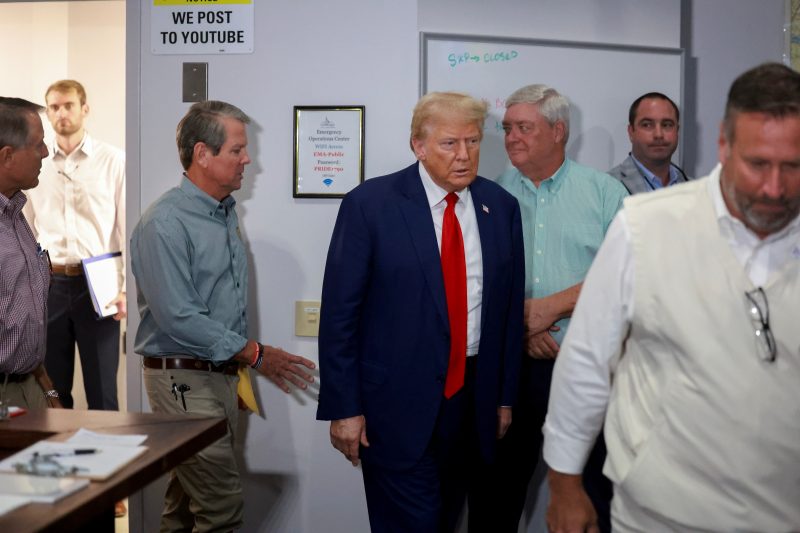In a world where accurate information is crucial, the role of leadership in disseminating trustworthy facts during natural disaster responses cannot be overstated. Unfortunately, some leaders have been known to peddle misinformation, causing confusion and potentially putting lives at risk. One such leader is former U.S. President Donald Trump, whose track record in handling natural disasters has been marred by the spread of misleading and false information.
Trump’s approach to natural disaster responses has often been characterized by a lack of empathy and a propensity to focus on self-aggrandizement rather than the well-being of those affected. This was evident in his response to Hurricane Maria, which devastated Puerto Rico in 2017. Despite widespread reports of the catastrophic impact of the hurricane, Trump downplayed the severity of the situation, claiming that the death toll was exaggerated to make him look bad.
Furthermore, Trump’s administration was criticized for its slow and inadequate response to the humanitarian crisis in Puerto Rico. Basic supplies such as water, food, and medical aid were not distributed promptly, leaving many residents without essential resources for survival. Instead of taking responsibility for the shortcomings in the relief efforts, Trump continued to praise his administration’s response, deepening the rift between the federal government and the people of Puerto Rico.
In the midst of the COVID-19 pandemic, Trump’s dissemination of misinformation reached new heights as he promoted unproven treatments and downplayed the severity of the virus. His erratic behavior and contradictory statements created confusion among the public, leading to widespread skepticism about the seriousness of the pandemic and the necessity of public health measures such as mask-wearing and social distancing.
Trump’s penchant for misinformation extended beyond natural disasters and public health crises to other areas of governance as well. His administration’s denial of climate change science and rollback of environmental protections further underscored his disregard for evidence-based decision-making and the well-being of future generations.
In contrast to Trump’s approach, effective leadership in natural disaster responses requires transparency, empathy, and a commitment to prioritizing the needs of the affected population. Leaders must convey accurate information to the public, coordinate timely and adequate relief efforts, and work collaboratively with local authorities and disaster response agencies to ensure a swift and effective response.
While the impact of Trump’s misinformation in natural disaster responses cannot be undone, it serves as a cautionary tale for future leaders. The consequences of spreading false information during times of crisis can be devastating, undermining public trust, impeding relief efforts, and putting lives at risk. Moving forward, it is essential that leaders prioritize truth and accountability in their communication strategies to ensure the safety and well-being of those affected by natural disasters.
